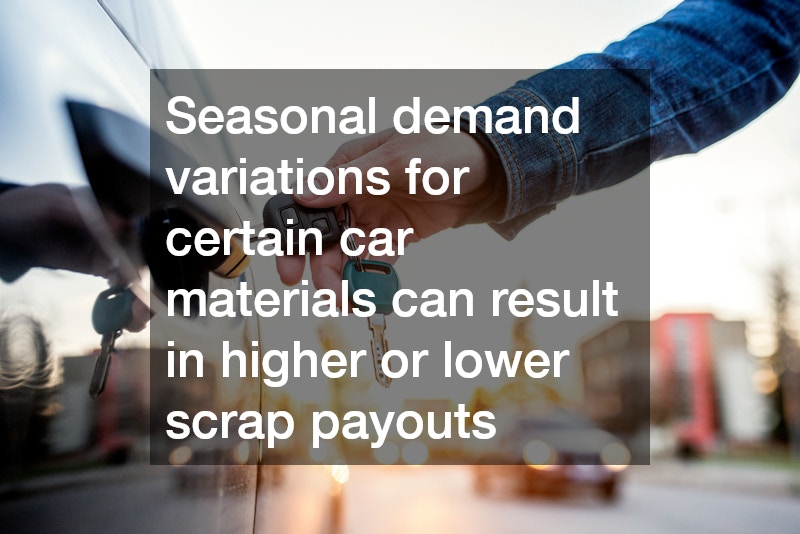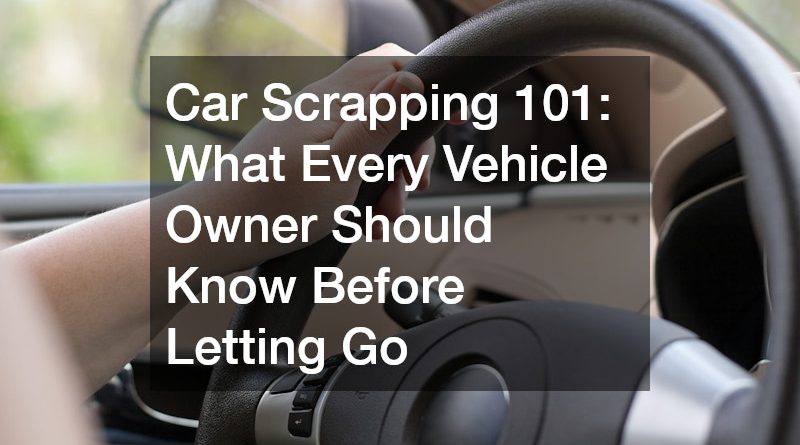Car Scrapping 101 What Every Vehicle Owner Should Know Before Letting Go
This section will introduce the reader to the concept of car scrapping, why it’s important, and what vehicle owners should consider before proceeding with the process.
What is Car Scrapping and Why Should I Consider It?
The Basics of Car Scrapping
Car scrapping involves dismantling a vehicle that is no longer useful or repairable and salvaging its functional parts. This process helps reduce environmental waste and maximizes the recycling potential of vehicle components.
Scrapping a car is a structured way to eliminate vehicles that are beyond their lifespan. It ensures that hazardous materials like engine oil and old batteries are disposed of safely.
Understanding the scrapping process is essential for vehicle owners when their cars become more of a burden than a means of transport. It offers a clear pathway to responsibly dispose of unwanted vehicles.
Benefits of Scrapping Your Car
Environmentally, car scrapping helps in reducing carbon footprints by recycling metal and other materials. This process minimizes the demand for raw materials, thus conserving natural resources.
Financially, scrapping a car can offer immediate cash, a viable option when repair costs exceed the vehicle’s value. Additionally, scrapping helps evade recurring expenses such as insurance and registration fees for non-functional cars.
Furthermore, scrapping provides the vehicle owner peace of mind, knowing their vehicle has been disposed of legally and sustainably. The practice ensures a safer environment by removing potential eye-sores from the streets.
How to Determine the Right Time to Scrap Your Car?
Signs Your Vehicle is Ready for Scrapping
When repair costs consistently exceed the car’s value, it might be time to consider scrapping. Frequent breakdowns and costly repairs are clear indicators that your car may have reached its end-of-life.
Another sign includes failing to pass emission tests, which often signify underlying mechanical issues. If the structural integrity of your vehicle is compromised, scrapping ensures safety by removing dangerous cars from circulation.
Constant warnings lights and unmanageable maintenance issues also suggest it’s time for scrapping. Vehicles that don’t meet the current safety standards typically require scrapping when updating them becomes financially unfeasible.
Cost-Benefit Analysis of Car Scrapping
Conducting a cost-benefit analysis helps determine whether to repair or scrap your car. Comparing the high costs of extensive repairs with the potential scrap value often reveals scrapping as a more economical choice.
Beyond financial considerations, evaluating the emotional value versus practicality also aids in making the decision. While attachments to a vehicle may exist, the practical benefits of scrapping commonly outweigh sentimental reasons.
Additionally, factoring in opportunity costs, such as time and inconvenience from constant repairs, supports the choice to scrap. Scrapping ends the cycle of inevitable repairs, offering financial and mental relief.
What is the Process of Scrapping a Car?
Step-by-Step Guide to Car Scrapping
First, locate a reputable scrapyard or scrapping service that complies with local regulations. Then, prepare necessary documents, such as proof of ownership and personal identification, for the scrapping transaction.
Next, get an appraisal or quote from the scrapyard to determine the vehicle’s scrap value. Once an agreement is reached, arrange for the car’s transportation to the scrapyard, often handled by the service provider.
Finally, complete the necessary paperwork to transfer ownership and ensure all legal requirements are met. Upon completion, the scrapping service issues a certificate of destruction, confirming the process legally concluded.
Legal Requirements and Documentation
Legally scrapping your car requires documentation like the vehicle title, photo ID, and a completed scrapping form. These steps ensure proper ownership transfer to prevent future liabilities.
The owner may need to inform the local vehicle registration authority about the scrapping to absolve ongoing duty responsibilities. Failure to handle this paperwork can result in legal issues or fines.
Additionally, confirming the compliance of the scrapyard with environmental regulations is crucial. This ensures that your vehicle is disposed of in an eco-friendly and law-abiding manner.
How Much Can I Expect to Get from Scrapping My Car?
Factors Affecting Scrap Car Value
The value of a scrap car is influenced by factors like its weight and the presence of valuable metals. Additionally, fluctuating market prices for scrap materials and demand can impact the expected payout.
The condition of the vehicle and its parts can also play a role, where functional components might fetch a higher price. Location and proximity to scrapyards often affect transportation costs, indirectly impacting the value received.
Moreover, seasonal demand variations for certain car materials can result in higher or lower scrap payouts. It’s wise to consult with multiple scrap services to gain a competitive and fair estimate.

